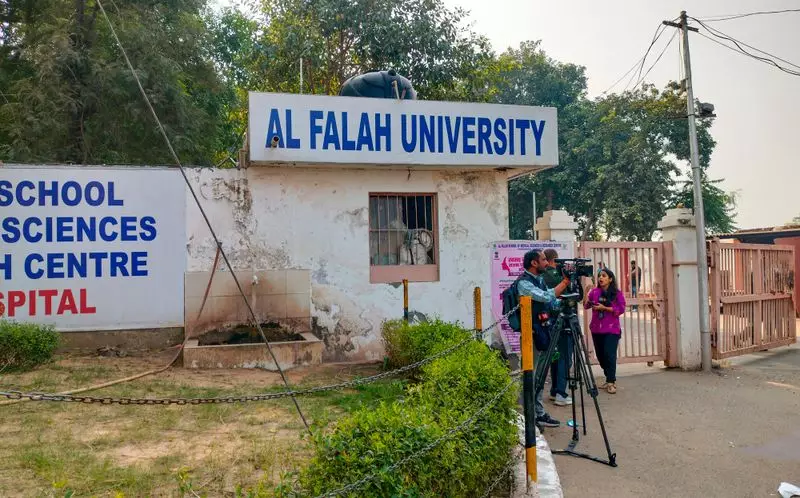
The chairman of Al Falah Group has been remanded to 13 days of Enforcement Directorate custody in connection with a high-profile terror funding investigation linked to the 2000 Red Fort blast case. This development marks a significant step forward in the long-running probe into the financial networks supporting terrorist activities.
Court Orders Extended Custody for Thorough Investigation
Special Judge Shailendra Malik of the Patiala House Courts granted the ED's request for extended custody of Mohammad Parvez Ahmed, allowing investigators to thoroughly examine the complex financial trail. The federal agency had sought 14 days of custody, arguing that they needed sufficient time to unravel the intricate web of transactions and identify all individuals involved in the funding network.
The court proceedings revealed that Ahmed was produced before the judge on Thursday following the expiration of his previous remand. The ED presented compelling evidence showing his alleged involvement in channeling funds through multiple layers of transactions, making the extended custody period necessary for a comprehensive investigation.
Historical Context: The 2000 Red Fort Attack
This investigation traces back to December 22, 2000, when terrorists attacked the historic Red Fort, resulting in the deaths of three people, including two Army personnel and one civilian security guard. The brazen assault on one of India's most iconic monuments sent shockwaves across the nation and prompted one of the most extensive counter-terrorism investigations in the country's history.
The case has seen multiple twists and turns over the past two decades, with investigators gradually piecing together the conspiracy that led to the attack. The current focus on the financial angle represents a crucial aspect of understanding how such operations are funded and sustained.
Ongoing Probe and Future Proceedings
Enforcement Directorate officials have indicated that they are examining numerous financial transactions and banking channels that allegedly facilitated the flow of funds to support terrorist activities. The 13-day custody period will enable investigators to conduct detailed questioning, verify documentary evidence, and potentially identify other individuals involved in the funding network.
The agency is particularly interested in understanding the complete mechanism of how funds were raised, transferred, and utilized for carrying out the terrorist attack. This includes tracing the international connections, if any, and identifying the masterminds behind the financial operations.
Legal experts following the case suggest that this development could open new avenues in the investigation, potentially leading to more arrests and a deeper understanding of the terror financing infrastructure operating within the country. The next hearing in the case is expected to provide further insights into the progress of the investigation.





